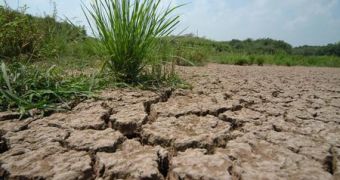A new study whose findings were made public by the US Forest Service maintains that, within the following 60 years, the country's southwest, together with parts of California and the Great Plains, are to be affected by water shortage.
The researchers who looked into this issue explain that, although these areas are bound to experience an increase in terms of population and economic activity, these two phenomena will not constitute a major threat to local water resources, simply because such developments now go hand in hand with efficiency.
However, climate change and global warming are nothing if not likely to both boost water demand in this part of the United States, and decrease the supplies people have at their disposal.
"Comparison of projected future water demand and supply across the conterminous United States indicates that, due to improving efficiency in water use, expected increases in population and economic activity do not by themselves pose a serious threat of large-scale water shortages," the report reads.
"However, climate change can increase water demand and decrease water supply to the extent that, barring major adaptation efforts, substantial future water shortages are likely, especially in the larger Southwest," the researchers go on to explain.
According to Environmental Leader, the rest of the country will also experience difficulties in terms of water availability.
Thus, it is to be expected that, by the year 2080, precipitation across the entire US will decline by roughly 30% of its current levels.
This basically means that those regions that are already particularly vulnerable to droughts and water scarcity can eventually find themselves having little or no water at their disposal.
In the aftermath of their making these predictions concerning future water scarcity in the US, US Forest Service demands that efforts be made to tackle this issue as soon as possible.
"Because further global temperature increases are probably unavoidable, adaptation will be essential in the areas of greatest increase in projected probability of shortage," the specialists who have pieced together this report urge.

 14 DAY TRIAL //
14 DAY TRIAL //